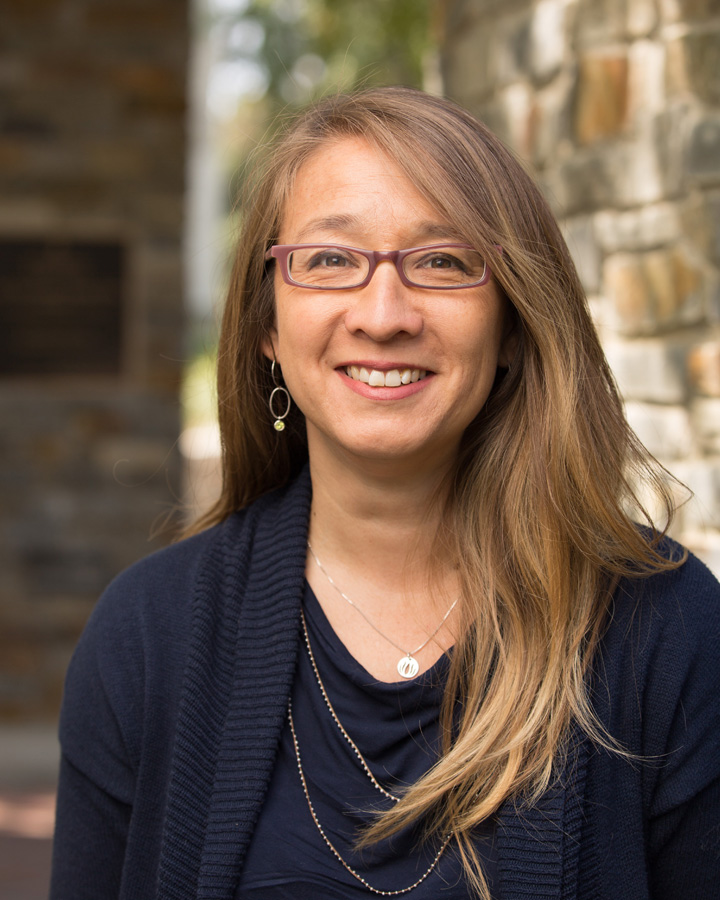Hewlett Foundation Grant Expands Multi-District Ethnic Studies Research

Motivated by questions asked by district leaders over the years and shifts in district policy, Kyo Yamashiro, assistant professor in the LMU School of Education (SOE), collaborated with a team of researchers to garner support for an in-depth research project about ethnic studies. The examination spans three districts – Los Angeles, San Francisco, and Albuquerque – and aims to determine if taking an ethnic studies course can improve student outcomes and reduce long-standing inequities.
Yamashiro and her UCLA co-principal investigator, Lucrecia Santibañez, are collaborating with district partners at L.A. Unified and other study collaborators at UC Irvine, University of New Mexico, and University of Massachusetts Amherst. The L.A. portion of the project is also affiliated with the Los Angeles Education Research Institute (LAERI) at UCLA Luskin. Now in the second of a three-year study, the project has received a generous grant from The William and Flora Hewlett Foundation to expand its work. The project’s multi-district approach appealed to the Hewlett Foundation, which funds strategies that help educators, schools, and their communities empower students so they reach their full potential.
“Ethnic studies courses can be a vehicle to engage students in their learning, and to connect culturally relevant content to learning and civic participation,” said Peter Rivera, education program officer at the William and Flora Hewlett Foundation. “We are excited to hear from students across various school systems about how this works for them. We hope to share takeaways from this work with our funding partners and grantees across the country.”

Yamashiro and collaborators seek to determine if ethnic studies can be used to help students who are struggling. For example, early evidence from San Francisco indicates that taking ethnic studies is associated with higher attendance rates, better grades, more credits earned, as well as higher rates of high school graduation and continuation to college for students with GPAs in the “C” range. Yamashiro and her colleagues in L.A. and Albuquerque will examine whether patterns in San Francisco hold in other district contexts with different implementation conditions, and across different student populations.
The second year of the study focuses on gathering school staff and student perspectives about ethnic studies to provide insight on whether or how ethnic studies may influence students’ academic and social-emotional outcomes.
“The grant from the William and Flora Hewlett Foundation allows us to seek the perspectives of students about their experiences in ethnic studies classrooms and how, if at all, the courses influenced their academic path or subsequent post-secondary choices,” said Yamashiro.
She added, “In a time when rhetoric is so heightened, gathering systematic information about participants’ experiences is critical to facilitating informed dialogue about ethnic studies as an intervention or curricular reform." Yamashiro said that connecting students' individual experiences with the large-scale inquiry about ethnic studies courses will "provide a panoply of rich and robust evidence as districts and states continue to scale ethnic studies courses across broader populations.”
Results from this project are particularly important for L.A. Unified as the district has expanded ethnic studies courses and content, and instituted an ethnic studies high school graduation requirement to be implemented for the incoming class of 2023-24. Similarly, California has just become the first state to require ethnic studies for high school graduation and the State Board of Education recently passed a model curriculum to guide how K-12 schools teach ethnic studies.
“Student voice and agency is critical evidence to collect as we prepare to offer ethnic studies learning experiences as a graduation requirement,” said Alison Yoshimoto-Towery, chief academic officer in Los Angeles Unified. “By uplifting the student and teacher experience of early implementing districts, we model continuous reflection, learning and improvement at the system level. We are grateful to the William and Flora Hewlett Foundation, Loyola Marymount University, and our research practice partners for providing proactive, formative feedback.”
To support programs in the LMU School of Education, contact Vanessa Benya, director of development, at 310.258.8752 or Vanessa.Benya@lmu.edu, or visit here.